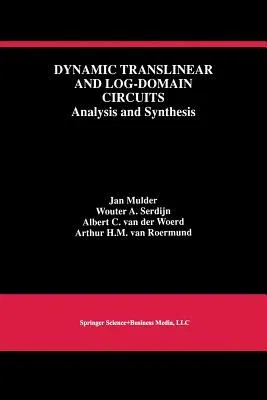Log-domain and translinear filters provide a competitive alternative to
the challenges of ever increasing low-voltage, low-power and high
frequency demands in the area of continuous-time filters. Since
translinear filters are fundamentally large-signal linear, they are
capable of realizing a large dynamic range in combination with excellent
tunability characteristics. Large-signal linearity is achieved by
exploiting the accurate exponential behavior of the bipolar transistor
or the subthreshold MOS transistor. A generalization of the dynamic
translinear principle exploiting the square law behavior of the MOS
transistor is theoretically possible, but not practically relevant.
Translinear and log-domain filters are based on the dynamic translinear
principle, a generalization of the conventional (static) translinear
principle. Besides their application for linear filters, dynamic
translinear circuits can also be used for the realization of non-linear
dynamic functions, such as oscillators, RMS-DC converters and
phase-locked loops.
Dynamic Translinear and Log-Domain Circuits: Analysis and Synthesis
covers both the analysis and synthesis of translinear circuits. The
theory is presented using one unifying framework for both static and
dynamic translinear networks, which is based on a current-mode approach.
General analysis methods are presented, including the large-signal and
non-stationary analysis of noise. A well-structured synthesis method is
described greatly enhancing the designability of log-domain and
translinear circuits. Comparisons are made with respect to alternative
analysis and synthesis methods presented in the literature. The theory
is illustrated and verified by various examples and realizations.
Dynamic Translinear and Log-Domain Circuits: Analysis and Synthesis is
an excellent reference for researchers and circuit designers, and may be
used as a text for advanced courses on the topic.


